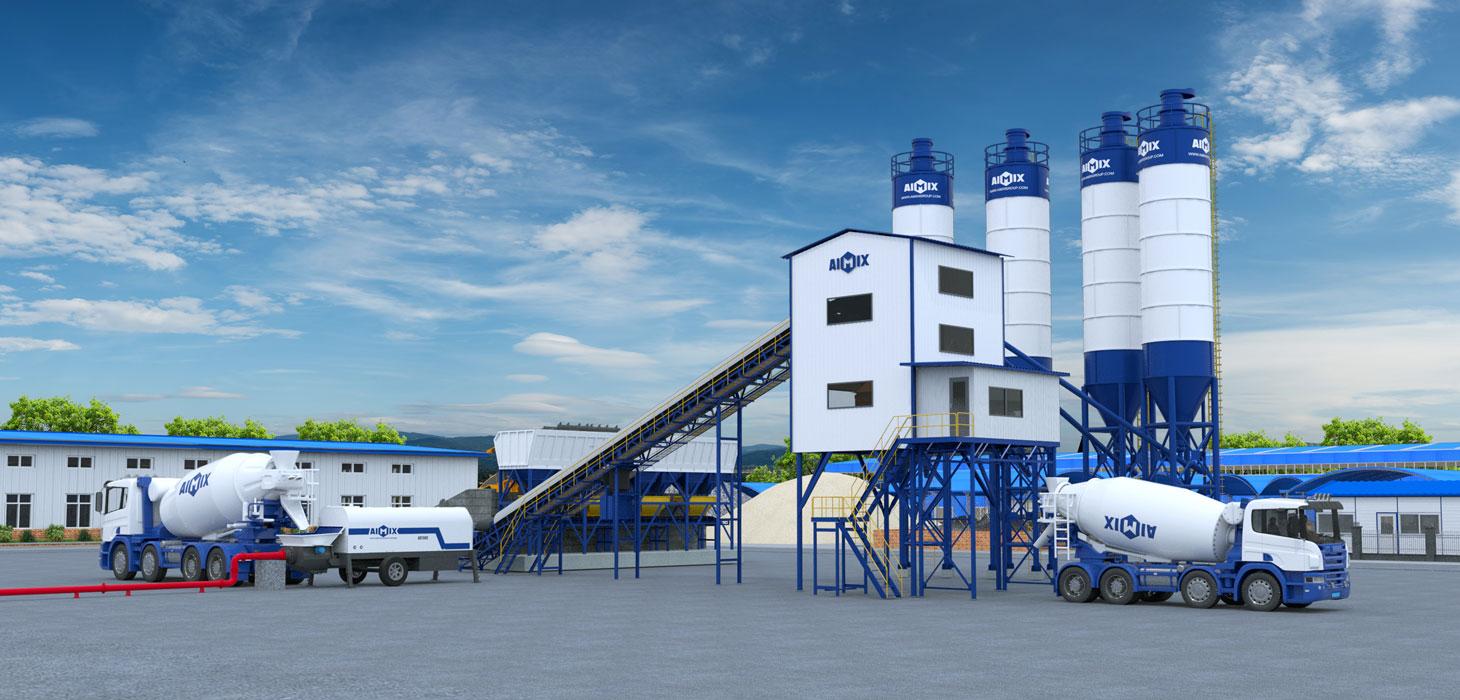RMC Plants for Sale: Ideal for Infrastructure, Residential, and Commercial Projects

Ready-mix concrete (RMC) plants have become indispensable in modern construction due to their efficiency, consistency, and ability to meet project deadlines. These plants ensure precise concrete mixtures, significantly reducing material wastage and labor dependency. As demand for durable and sustainable construction materials rises, investing in an RMC batching plant becomes a strategic decision for contractors and developers.
With the increasing complexity of infrastructure, residential, and commercial projects, the need for high-quality concrete production has surged. RMC plants cater to this demand by offering **customized mix designs**, **automated batching systems**, and **on-time delivery**. Understanding the advantages of RMC plants and their applications in various sectors can help businesses make informed purchasing decisions.
Advantages of RMC Plants in Construction
Enhanced Quality Control and Efficiency
One of the primary benefits of RMC plants is the **stringent quality control** they offer. Traditional on-site concrete mixing often leads to inconsistencies in composition, affecting structural integrity. RMC plants, however, use **computerized batching systems**, ensuring uniformity in concrete production.

Additionally, these plants optimize raw material usage, minimizing waste. Automated processes reduce manual labor dependency, leading to faster and more cost-effective construction. This level of precision is particularly crucial in **high-load infrastructure projects** where material consistency directly impacts durability.
Cost-Effectiveness and Sustainability
While the initial investment in an RMC plant may seem substantial, the long-term cost benefits outweigh the expenses. The ability to **produce concrete in bulk** reduces procurement costs and enhances project timelines. Moreover, efficient resource utilization significantly lowers transportation and handling expenses.
Environmental sustainability is another critical advantage. Many modern portable batch plants incorporate **recycling mechanisms** for water and aggregates, reducing waste generation. Additionally, by minimizing on-site cement mixing, these plants contribute to **lower dust and emissions**, promoting a healthier work environment.
Application of RMC Plants in Various Projects
Infrastructure Development
Infrastructure projects, including highways, bridges, and tunnels, demand concrete of **exceptional strength and durability**. RMC plants facilitate the production of specialized concrete mixes with additives that enhance **load-bearing capacity and longevity**.
Large-scale projects also benefit from the **continuous supply of concrete**, eliminating delays caused by manual mixing. Furthermore, the ability to transport pre-mixed concrete over long distances ensures consistency and prevents setting-related quality issues.
Residential and Commercial Construction
Residential and commercial projects rely on **aesthetic finishes and structural precision**. RMC plants enable developers to obtain **customized concrete formulations**, catering to specific architectural requirements. Whether it’s a **high-rise building or a residential complex**, these plants ensure that concrete strength and workability align with design specifications.
Additionally, RMC solutions improve construction speed, reducing project turnaround times. This efficiency not only enhances profitability but also ensures compliance with **urban development regulations** that emphasize sustainable building practices.

Key Considerations When Investing in an RMC Plant
Production Capacity and Scalability
Choosing the right RMC plant involves assessing **production capacity and scalability**. Small-scale projects may require compact batching plants, while large-scale infrastructure developments necessitate **high-output automated systems**. Check different capacities of batch plants on this page: https://aimixconcretesolution.com/concrete-batching-plant/.
Scalability is essential for businesses planning long-term operations. Investing in modular RMC plants allows for future expansions, ensuring adaptability to **growing market demands**.
Technology and Compliance Standards
Modern RMC plants come equipped with **advanced automation and monitoring systems** that enhance precision and reduce operational risks. Features like **real-time quality checks, GPS-enabled fleet tracking, and AI-driven mix optimization** are crucial for maintaining production efficiency.
Additionally, regulatory compliance is a non-negotiable factor. Ensuring that the RMC plant adheres to **local and international construction standards** guarantees the durability and reliability of produced concrete, safeguarding long-term project success.
Conclusion
Investing in an RMC plant is a strategic move for businesses involved in infrastructure, residential, and commercial construction. The advantages of **quality control, cost efficiency, and sustainability** make these plants a preferred choice for modern projects. With technological advancements continuously enhancing production capabilities, RMC plants offer a **future-proof solution** to meet growing construction demands.
By carefully evaluating factors such as **capacity, scalability, and compliance**, businesses can maximize the benefits of their investment. Whether for large-scale infrastructure development or high-rise commercial buildings, RMC plants remain an indispensable asset in today’s construction industry.
- Information Technology
- Office Equipment and Supplies
- Cars and Trucks
- Persons
- Books and Authors
- Tutorials
- Art
- Causes
- Crafts
- Dance
- Drinks
- Film
- Fitness
- Food
- Games
- Gardening
- Health
- Home
- Literature
- Music
- Networking
- Other
- Party
- Religion
- Shopping
- Sports
- Theater
- Wellness


